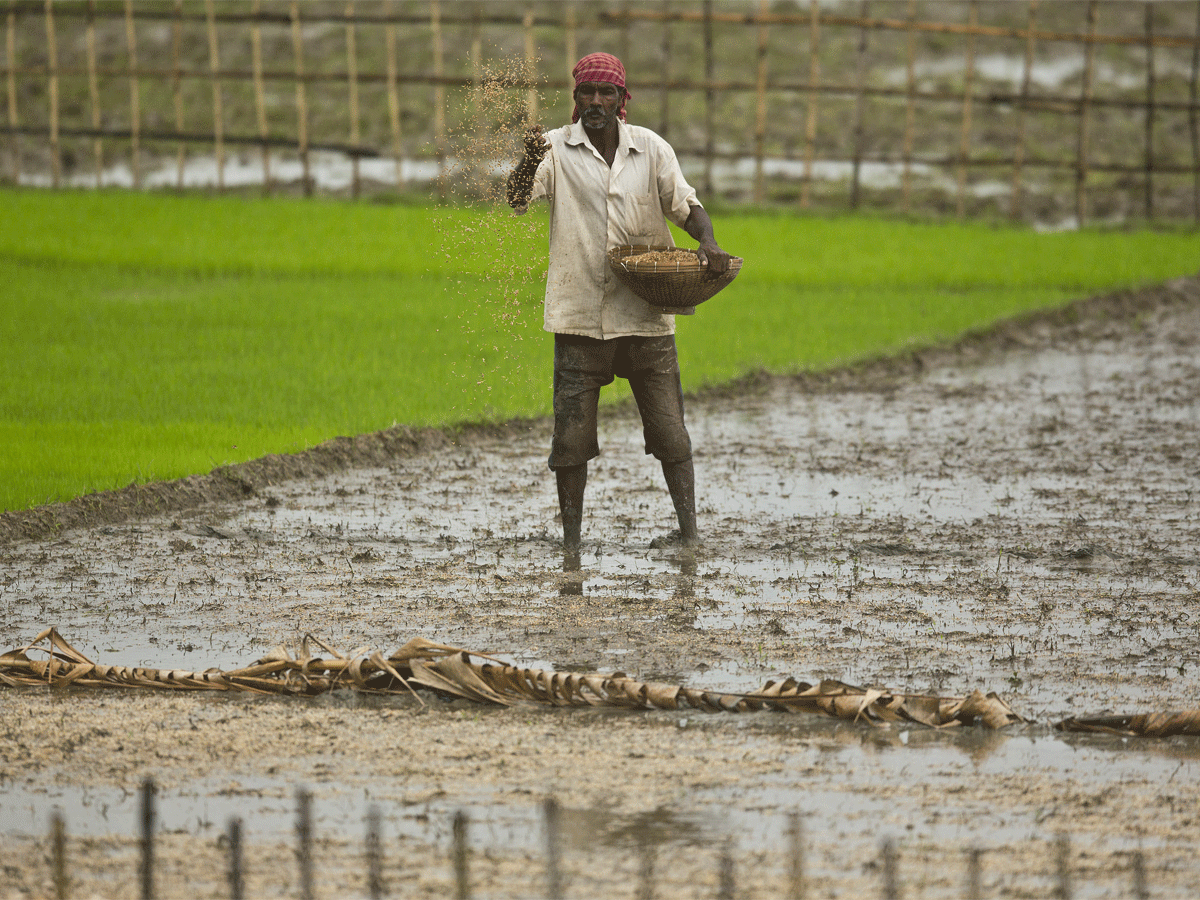
Seizing on controversial new deregulation, entrepreneurs are promoting farmers apps to attach them to huge consumers nationwide and utilizing synthetic intelligence (AI) to enhance the rickety provide chains that lose one-fourth of India’s produce to wastage.
Monumental quantities of India’s grain, fruit and greens rot between farm and desk due to guide dealing with, repeated loading and unloading, poor stock administration, lack of satisfactory storage and gradual motion of products. This charge of wastage from defective provide chains is 4 to 5 occasions that of most massive economies, specialists say.
Prime Minister Narendra Modi’s authorities launched modifications it calls a watershed that can “take away middlemen and let farmers promote their produce on to consumers,” bettering their prospects, particularly in far off areas.
Modi’s September overhauls, doubtlessly the largest reform ever to India’s large farm economic system, let farmers promote to establishments and massive retailers equivalent to Walmart , not simply to regulated wholesale markets.
However farmers fought again with disruptive nationwide protests and Modi misplaced a cupboard minister from breadbasket state Punjab over issues that the deregulation may endanger government-guaranteed minimal costs for produce.
The farm sector contributes almost 15% of the output of India’s $2.9 trillion economic system and employs round half its 1.3 billion individuals.
Excessive-tech spuds
Producers and consumers are on the lookout for enterprise, helped by high-tech gear backed by huge traders.
Some 85% of India’s farmers personal lower than 2 hectares (5 acres) of land and lack the means to promote past native markets, even when which means forgoing higher costs.
Potato farmer Rakesh Singh in Uttar Pradesh stated he’s eager to get computer-enhanced instruments to assist his enterprise in India’s most populous state.
“Actual-time costs out there on reside digital buying and selling platforms and easy-to-use buying and selling apps for cellphones make the method of worth discovery and promoting items a clear and hassle-free expertise for us,” he informed Reuters.
Singh is trying ahead to a buying and selling app from Farmpal Applied sciences Pvt Ltd, a small agency based mostly in western Maharashtra state, concentrating on heartland states with know-how that connects producers instantly with retailers, its software program predicting market circumstances and managing inventories accordingly.
“As a two-year-old startup, we have seen the transformative nature of AI, which drastically reduces food waste and helps farmers get higher costs, and consumers get higher high quality with a predictable provide chain,” stated Farmpal founder Puneet Sethi.
Reasonably priced cellphones and ultra-cheap information make it simpler for farmers to go digital.
Mark Kahn, managing associate of Omnivore Capital, a enterprise capital agency that funds farm-tech corporations, estimates $1 billion will movement into India’s agritech sector annually with startups rising 20% to 30% yearly.
“The brand new legislation can have a direct influence, and there may be going to be a spurt in agritech startups,” Kahn stated.
Sequoia Capital and Tiger International have additionally funded agritech startups that purpose to run the complete meals provide chain.
Some corporations will develop AI instruments for assaying and warehousing, others will supply digital platforms to attach farmers with mom-and-pop shops and enormous retailers.
Digitising the provision chain will generate information that corporations will use to gauge demand, crop dimension and new season arrivals, stated Farmpal’s Sethi.
Nukul Upadhye, co-founder of Bijak, one other startup, stated: “We offer farmers with an information set of excellent, dependable consumers from far-off locations prepared to pay a premium for the produce of their alternative and high quality. That means, we assist each farmers and their consumers.”
However some growers, like Singh, may also proceed to depend on current markets that provide a stage of safety.
“I haven’t got 100% management over the standard of my crop, which is able to at all times be weak to dangerous climate,” he stated. “I do know that agritech corporations will reject my crop if it would not meet their inflexible high quality requirements.”






